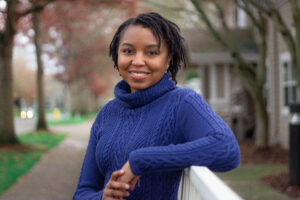Dr. Lauren Forbes, PhD, is an Assistant Professor in the...
Read MoreThe Cincinnati Project (TCP) tackles justice and equity in




TCP harnesses the expertise from the University of Cincinnati’s College of Arts and Sciences and community partners to conduct research that promotes equity and directly benefits marginalized communities in Cincinnati.





UC students, staff, and faculty have participated in the work of The Cincinnati Project since 1/16
0

Community Orgs collaborating with UC researchers to serve Cincinnati.
0
Learn more about the Cincinnati Project
Latest News & Updates
From the Director’s Desk: A New Beginning
Starting this month, we are instituting a new blog for...
Read MoreStay In, Speak Out!
Writing for Justice in Covid-19 Students in Writing for Justice,...
Read MoreScholarship in Pursuit of Justice at the 2020 TCP Symposium
BY BOB HYLAND In early March 2020, just before COVID-19...
Read More

